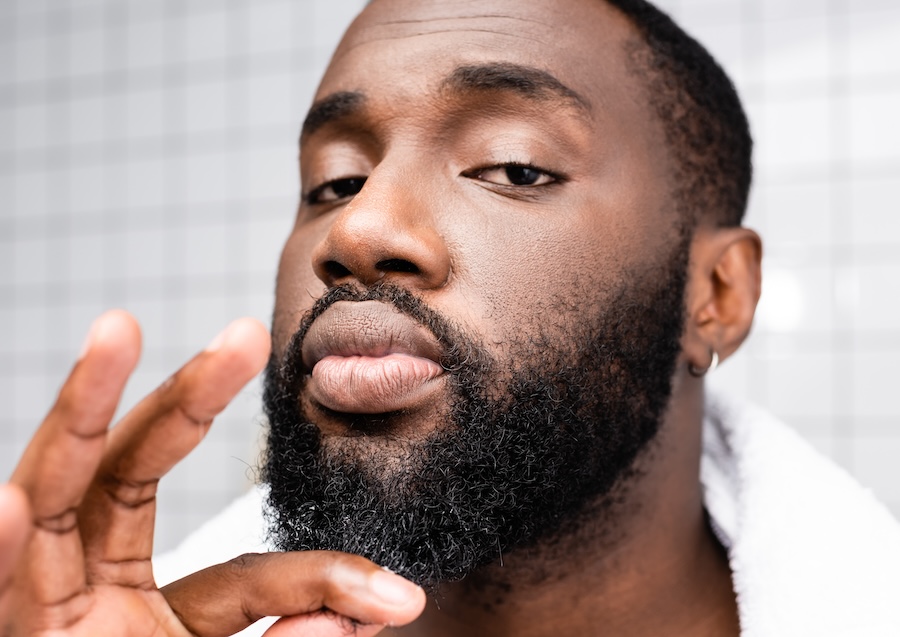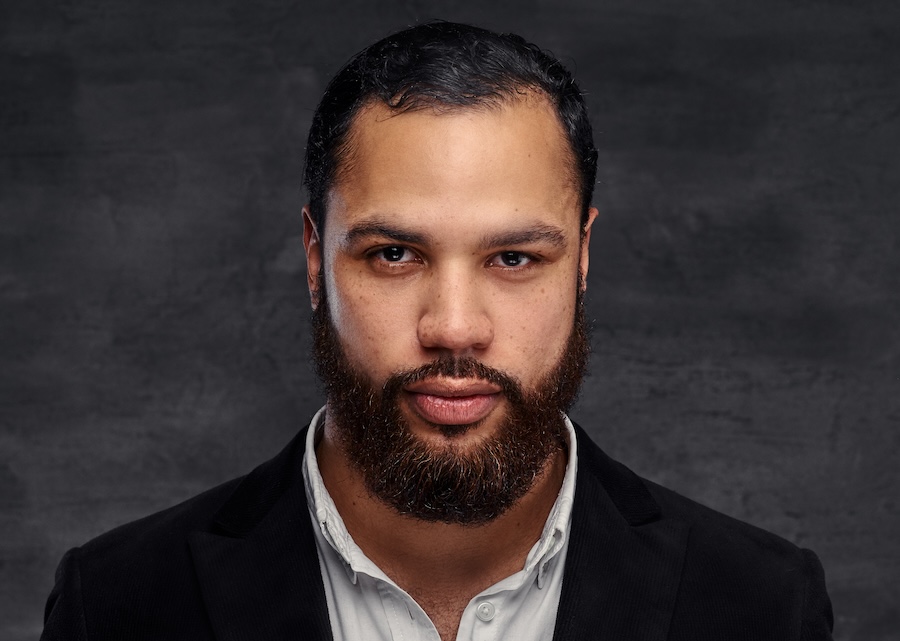Beard Psychology | What Your Beard Says About You
 Medically Reviewed
Medically Reviewed
 Joe Nightingale, MBBS, MSc
Joe Nightingale, MBBS, MSc

Beards are more than a fashion statement; they reveal something about who you are (or who you want the world to think you are). They're an insight into our personal identity, right? A choice only you can make.
Well, yes and no. We don't grow beards in isolation. Throughout the ages, beard trends tend to occur in cycles; some periods, like the 18th century, prize fresh-faced cheeks and a well-shaven face; others, like the early 20th century, suddenly see beards and mustaches spring back into existence.
What's going on? Is there any underlying beard psychology? Or is this just man's favorite fashion trend continuing forever? Let's find out.
In this article:
- Why Grow a Beard?
- Clean-Shaven vs Beard Psychology: What's the Difference?
- How the Beard Made History
Why Grow a Beard?

Perhaps before we get into the deep psychology of beards, we should ask why most men grow them. The reasons are manifold. However, commonly, men want to look more manly to cover up a lackluster jawline. Some psychologists even claim beards block out UV rays and filter air – so apparently, there's a cadre of men growing beards to avoid skin cancer and asthma (yeah, I'm skeptical, too).
What other reasons do men grow beards? Here are a few suggestions:
- Beards are the ultimate accessory for a man's face, offering a rugged or refined look depending on the style.
- They're a symbol of masculinity and virility, signaling strength and maturity.
- Beards can make men look distinguished and wise, adding an aura of experience.
- Sporting a beard can be a form of self-expression and rebellion against the clean-shaven norm.
- Ditching the daily shave saves time and reduces physical upkeep.
- Shaving can irritate the underlying skin.
- Some cultures heavily emphasize the beard for religious reasons, such as Sikhs or the Amish.
Clean-Shaven vs Beard Psychology: What's the Difference?
Evolutionary Origins of Beards

Charles Darwin, the father of Evolution, was famous for his big bushy beard. Earlier in his life, when he took that fateful voyage to the Galapagos Islands, he sported an impressive set of mutton chops. Under his original theory of natural selection, beards made no sense. They didn't help you outrun predators or chase down prey; they weren't camouflage, nor could a beard keep you sufficiently warm.
That was when Darwin (and his associate Alfred Wallace) hit upon sexual selection. Beards weren't about survival; they were sexy. And the sexier the beard made a man look, the more like he would father children to carry his genes.
It's notable that the beard is a secondary sexual characteristic. Developing in puberty, these characteristics usually function to attract a mate. That means that beard growth is sparked by testosterone: a biological proof for the link between manliness and 'beardliness'. So, maybe the beard is a signal of dominance and masculinity. After all, beards are associated with wizards, kings, and rugged outlaws.
That's all well and good – but didn't anyone actually ask what women like?
Beards and Attractivity

According to a 1973 study that rated undergraduate men's faces: bearded men were more attractive alongside other factors like masculinity, maturity, self-confidence, courage, and industriousness. But that's just hairy 70s. Well, another study in 2015 found that men with more even facial hair were more sexually attractive than individuals with more patchy facial hair.
Not all papers conclusively agree. For example, a 2012 international study revealed that European women in New Zealand and Polynesian women in Samoa viewed men with beards as older and of higher social status, though not necessarily more attractive. Additionally, when bearded men displayed aggression, these women perceived them as more intimidating than their clean-shaven counterparts, exhibiting the same expression.
Beards and a Man's Image

Beard psychology isn't necessarily just about finding a mate. Humans are social animals, and group dynamics also influence whether you should or shouldn't grow a beard.
A 2014 study surveyed university students and concluded that men with beards were deemed more trustworthy. In a similar vein, a 1990 study using ink sketches of job applicants found that those depicted with beards were perceived as more competent and attractive. Additionally, research analyzing LinkedIn profile photos revealed that bearded men were viewed as more knowledgeable. Interestingly, the same study noted that women wearing glasses were also seen as having an enhanced image.
So, that's the roots of the bearded wizard – the wise, trustworthy, and knowledgeable expert.
How the Beard Made History

Okay. Beards make you more attractive to some, make you appear smarter and wiser, older and more authoritative, and most of all, more masculine. That raises the question: Why did we ever start shaving at all? And why do beards appear to go in and out of fashion?
Humans have been shaving since around 100,000 BC. Archaeologists have found evidence of rocks and shells being used as tweezers. Only later did we use a sharpened flint to remove excess hair. Perhaps the earliest concern was a fear of uncleanliness. Beards can harbor bacteria, dirt, and debris if not properly groomed.
Why beards cycle round in trends is anyone's guess? Maybe during more tumultuous periods, men grow beards to assert their dominance and prove they are a safe choice for a prospective wife. Maybe it's just a random fashion occurrence. The Emperor Hadrian, for example, eschewed the Roman tradition of clean-shaven men, growing a beard as a symbol of his love of Greece. Meanwhile, the Victorian beard craze died out in favor of the mid-century corporate man.
Whatever your personal beard psychology, it only works if it's clean and well-groomed. Enter Beard Sorcery – a magical collection of beard products, including oils, balms, creams, and waxes.
We've got everything you need for an incredible beard. All our products are handmade in Colorado and contain only natural, cruelty-free ingredients. Master your beard psychology. Browse our products today!
